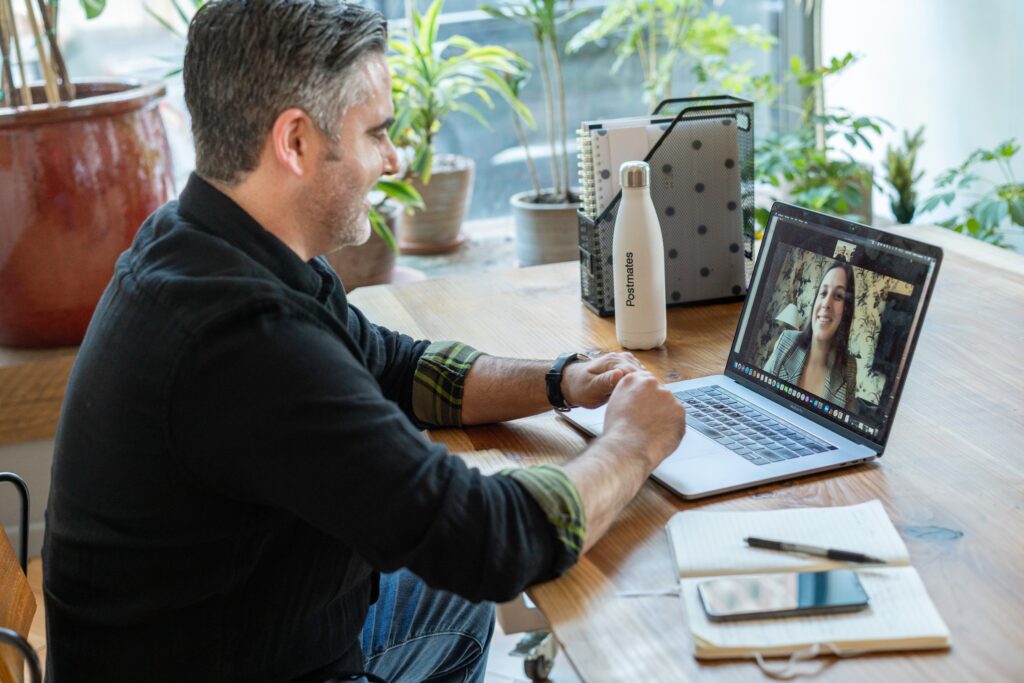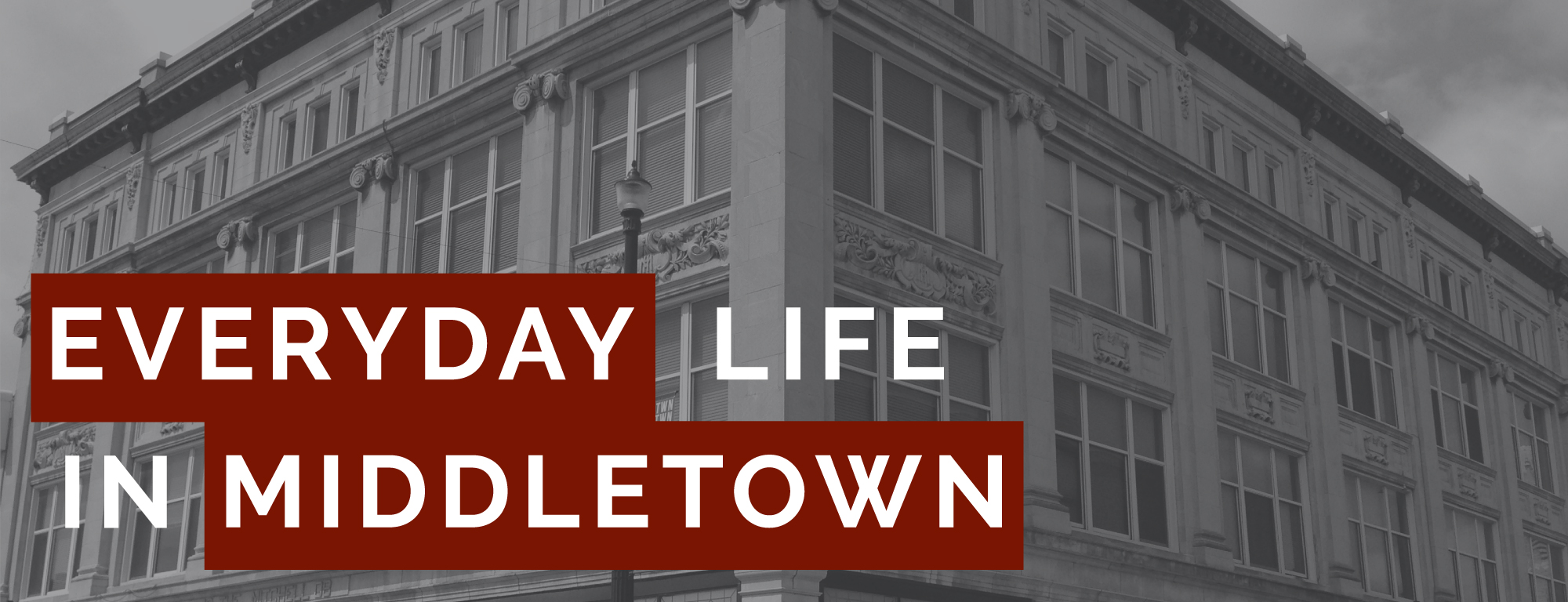
It has been widely documented that the pandemic is exacerbating social inequalities—hitting some demographics (the poor and working class, people of color, essential workers) harder than others.
While there is some demographic variety among Everyday Life in Middletown’s volunteer writers, a majority come from Muncie’s professional middle class, with many working in or around the university or in health care or the non-profit sector. (This lack of diversity is a problem that we have been working to address, with mixed success. To an extent our model, which emphasizes the personal diary and individual writing, creates a self-selecting cohort that writes fluently and enjoys it. The pandemic has also severely curtailed our face-to-face recruiting.)
As a result, our archive is, for the most part, registering a relatively narrow slice of the community’s population—one that has, while suffering the social isolation and disruption of the pandemic, and even (in several cases) coming down with Covid-19, not faced the most drastic social consequences of the pandemic, such as unemployment, homelessness, or severe illness.
This also means, however, that we are getting a detailed, focused look at the emotional landscape facing precisely these kinds of people.
Not surprisingly, an awareness of privilege is a significant theme in our last three collections. Our writers express gratitude for the material and personal resources that have shielded them from the worst of the pandemic, concern for those less fortunate, and even guilt at their insulation, or at their urge to complain about the pandemic’s disruptions, when so many have it much worse.
“Despite the uncertainty we all deal with, I am grateful for some things in the past year, and have occasionally felt a little survivor’s guilt that I emerged relatively unscathed,” wrote one volunteer. “I (still) have the health of my family and most friends. Those afflicted with Covid were largely mildly so, and friends I lost in the last year passed from more generally-recognized causes, mainly life and normal wear-and-tear. I have full-time employment, and I was not furloughed or re-deployed to a high risk area….”
We have written previously on this blog about gratitude as a predominant feeling in contemporary culture. For some years now, the notion that we can aid our mental health by deliberately cultivating feelings of gratitude has been circulating widely in popular culture, buoyed by research in positive psychology. People buy gratitude journals and adopt other daily rituals for naming the things in their life for which they are grateful.
Gratitude is, to use a useful and well-worn term from the British cultural critic Raymond Williams, an element of the contemporary “structure of feeling.” Faced with a wide array of circumstances—from unforeseen good luck to the most pressing personal problems—many of us will react in part by reaching for gratitude: being grateful for our good fortune, or counting our blessings in times of trouble.
Gratitude is also a mood in the specific terms laid out by Ben Highmore, a professor at the University of Sussex in the UK and one of the leading theorists of everyday life working today. In his book Cultural Feelings, Highmore argues that many moods are culturally created through the conscious labor of psychologists, self-help writers, and HR and marketing departments. Gratitude is clearly this kind of mood—one that is not only highly culturally available at this moment but is being actively produced and encouraged in a seemingly endless stream of content.
This theme emerged strongly in the EDLM archive from the start. And it is not surprising that it is foregrounded in materials our volunteers have produced since the start of the pandemic.
Indeed, one powerful trope in our collections since March 2020 is a counting-of-blessings specifically linked to coping in the pandemic, usually combined with an expression of empathy for others who have it worse.
“It feels wrong to complain when things could be so much worse,” one diarist concluded in a January 3, 2021 diary, after offering a long list of items “added to our gratitude list in the last few weeks”: “internet, a big dining room table, our steady stream of income, all the museums who put their collections online….YouTube so we can all learn new skills, organizations who offer homework help to students, books.”
Another reached for gratitude while processing not only the pandemic (and a recent surge) but the political upsets of the past year, in a September diary:
“My friend compared these newest waves of upheaval to the descending drain of the toilet 2020 has been. Ever the realist, I replied that while a good flush is needed and wanted, I think we’re just backed up right now…and there’s no plunger in sight.
“Self-care is important. Always take gratitude and fortune in the things you have. Be also mindful of those who do not.”
A third provides a lengthy paragraph delineating all the things she is grateful for in the past year. (This was January 3, the year’s first Sunday and one that prompted a lot of reflection among our writers). Her diary points to another element of the pandemic structure of feeling: what we might call the sense of pandemic privilege: the recognition that one has suffered significantly less than others in the pandemic, with more or less acknowledgment that this is a function of structural inequalities in our society.
Diarist I69 is quite aware of these inequities and the paradoxical ways in which she benefited from the pandemic, even while suffering its disruptions of her work life, limits on her mobility and socialization, and more. An academic whose spouse works in another state, she was able to live with him full-time for the first time in years because she was teaching fully online.
“My mantra in 2020 became ‘Do what you can with what you have and try to be content and grateful that we (I, my family and I, my students and colleagues and I) are learning something, even if it’s not what we planned…. I learned how to teach online and that, not surprisingly, I prefer face-to-face teaching. I am not connecting with students nearly as much, but we’re still learning. I’m learning to connect with friends across the country in new virtual ways. I’m learning how to be at peace with disappointments that have come with a global pandemic, like the social isolation, while also being grateful for new opportunities that have arisen, like living with my partner fulltime. Most of all, though, I’m grateful that I have not lost any loved ones to Covid-19.”
Looming behind these expressions of gratitude are another set of people, often only dimly imagined. The retail employees, health care workers, bus drivers, teachers, and others unable to set up a home office or decamp to a more agreeable location. There are also retirees in our panel of diarists for whom the pandemic has disrupted some important things—think visits with grandchildren—but has left daily rhythms largely untouched. Among the grateful, the abstractness of the references to those less fortunate highlights the extent to which the pandemic has sharpened differences. Class divisions were already well outlined in this city, and so many others. A retreat into a cossetted domestic realm to avoid infection has only deepened them.

